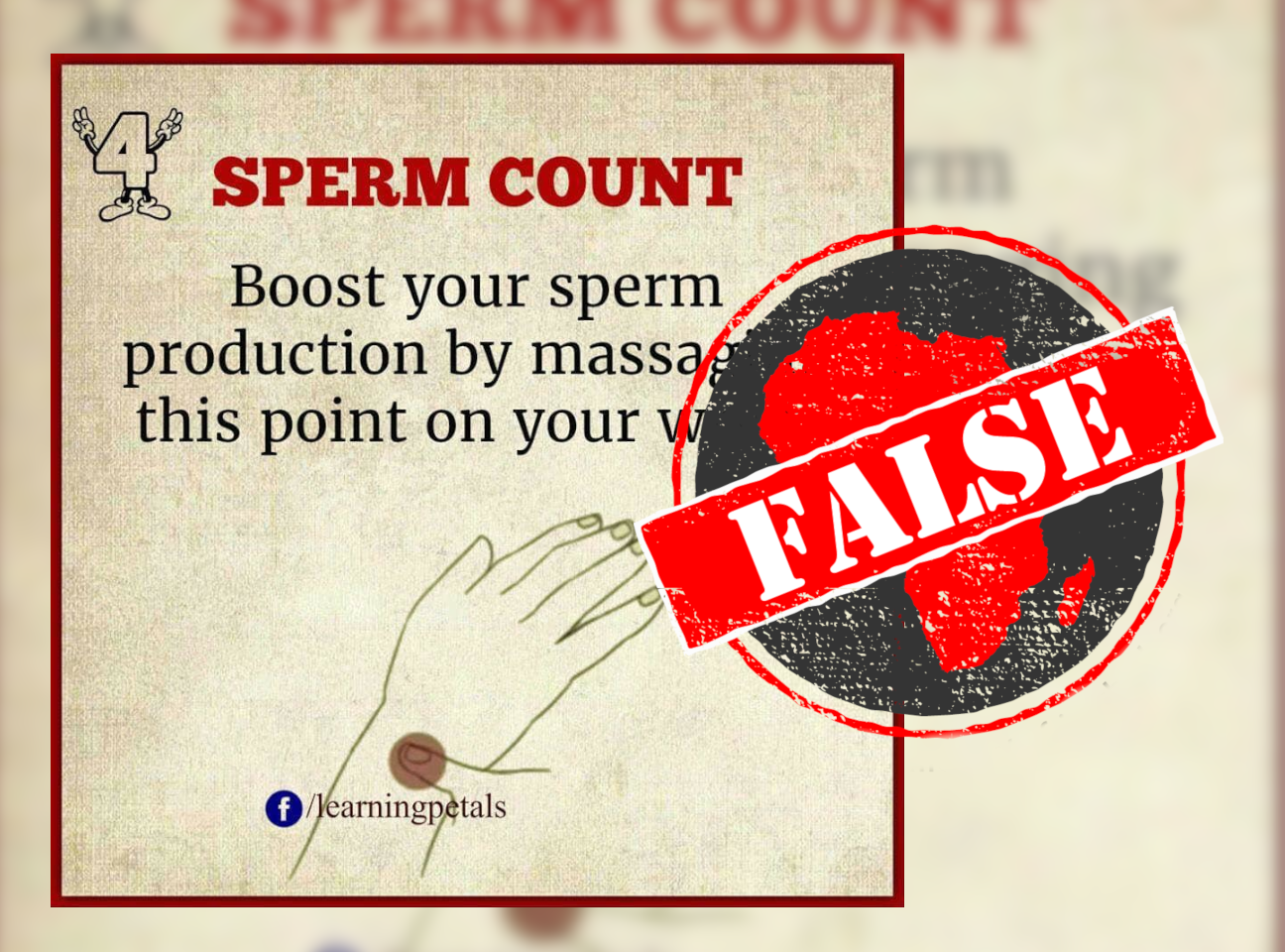Massaging the centre of the wrist boosts sperm production, says a Facebook graphic shared over a thousand times.
The graphic has the headline “Sperm count” and an illustration of a thumb at the centre point on a wrist. “Boost your sperm production by massaging this point on your wrist,” text on it reads.
Some of the nearly 600 comments on the post questioned its truthfulness. Does it have any basis in science?

What is low sperm count?
According to Mayo Clinic, a US non-profit medical centre, a man’s sperm count is calculated by examining his semen under a microscope and counting how many sperm cells appear within squares on a grid pattern.
Normal sperm densities range from 15 million to over 200 million sperm per millilitre of semen, and a man is considered to have a low sperm count if it is fewer than 15 million sperm per milliliter. This translates to less than 39 million sperm per ejaculate.
No scientific proof
“The claim is ridiculous, I’ve never heard of it in my decades of practice,” Sulyman Kuranga, a professor of urology at the University of Ilorin in north-central Nigeria, told Africa Check.
He said: “There is no scientific proof that any such therapy can increase sperm count. Low sperm count is commonly caused by infections. Once the infections are treated, the man’s sperm production is restored.”
“So massaging the wrist will not boost sperm production. There is no scientific basis for that and it would have no effect on sperm production,” Kuranga said.
We also found no study linking any wrist massage to increased sperm production.
Africa Check has debunked other similar claims around herbal mixtures and concoctions that supposedly boost sperm production. Like this one, we found no scientific evidence for them and rated them false.
Republish our content for free
For publishers: what to do if your post is rated false
A fact-checker has rated your Facebook or Instagram post as “false”, “altered”, “partly false” or “missing context”. This could have serious consequences. What do you do?
Click on our guide for the steps you should follow.
Publishers guideAfrica Check teams up with Facebook
Africa Check is a partner in Meta's third-party fact-checking programme to help stop the spread of false information on social media.
The content we rate as “false” will be downgraded on Facebook and Instagram. This means fewer people will see it.
You can also help identify false information on Facebook. This guide explains how.


Add new comment